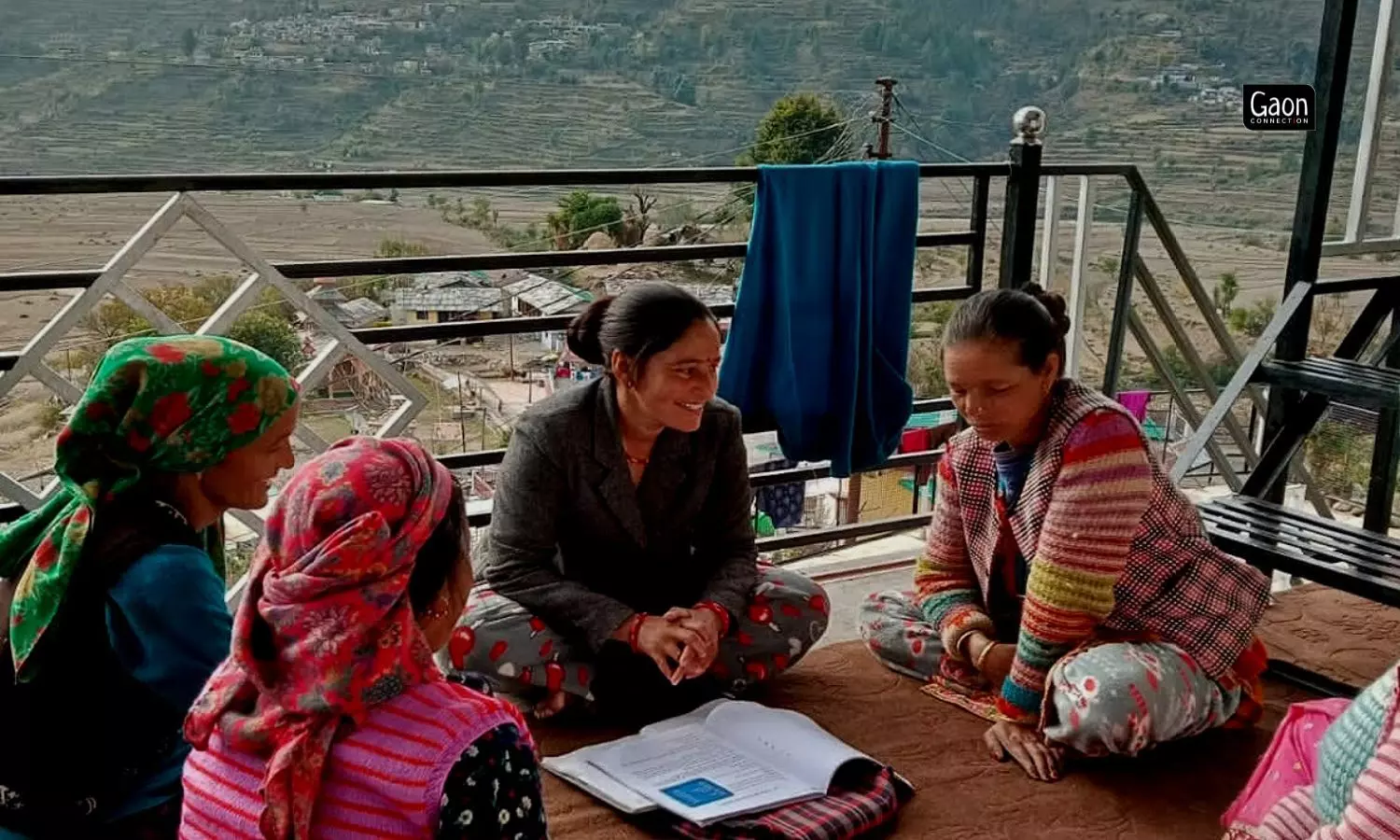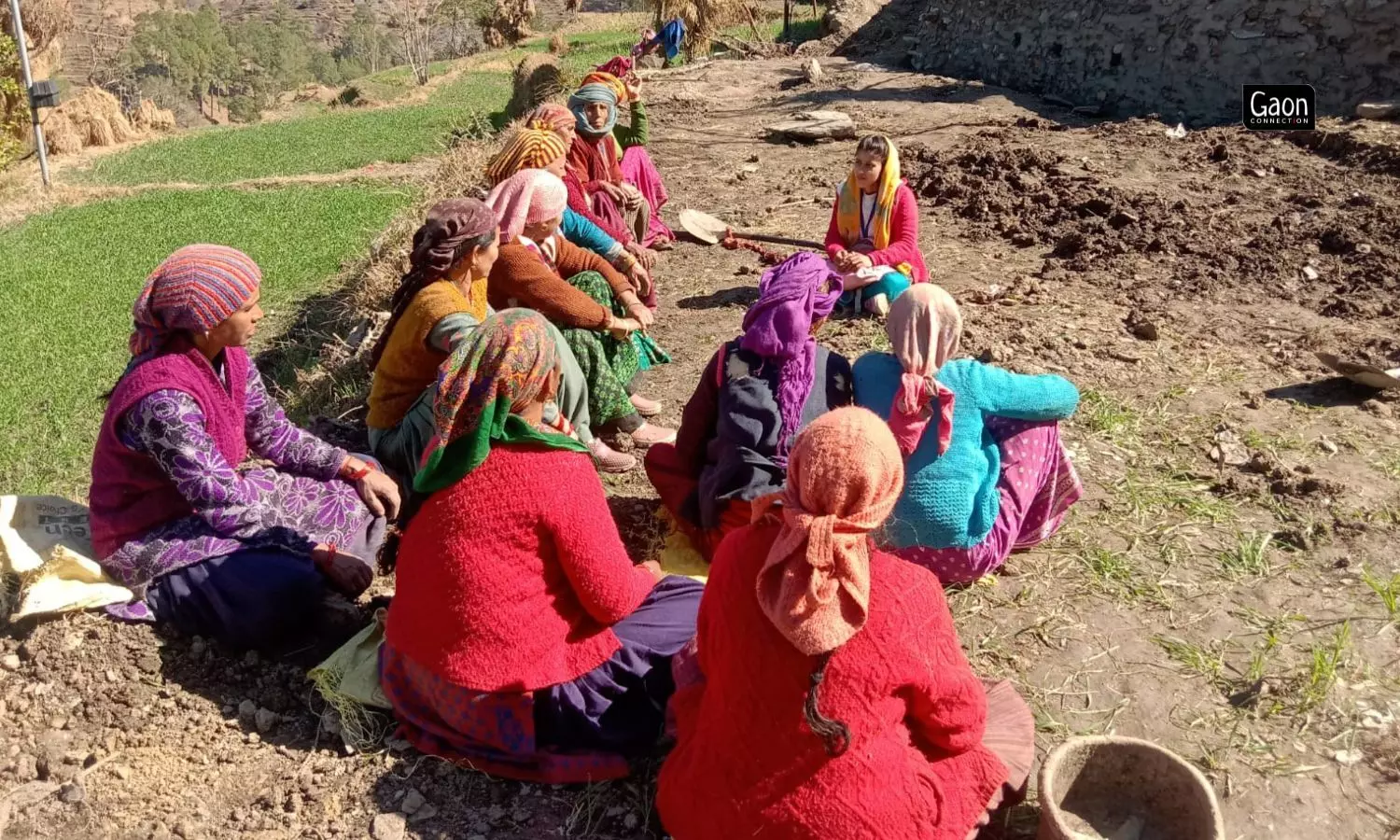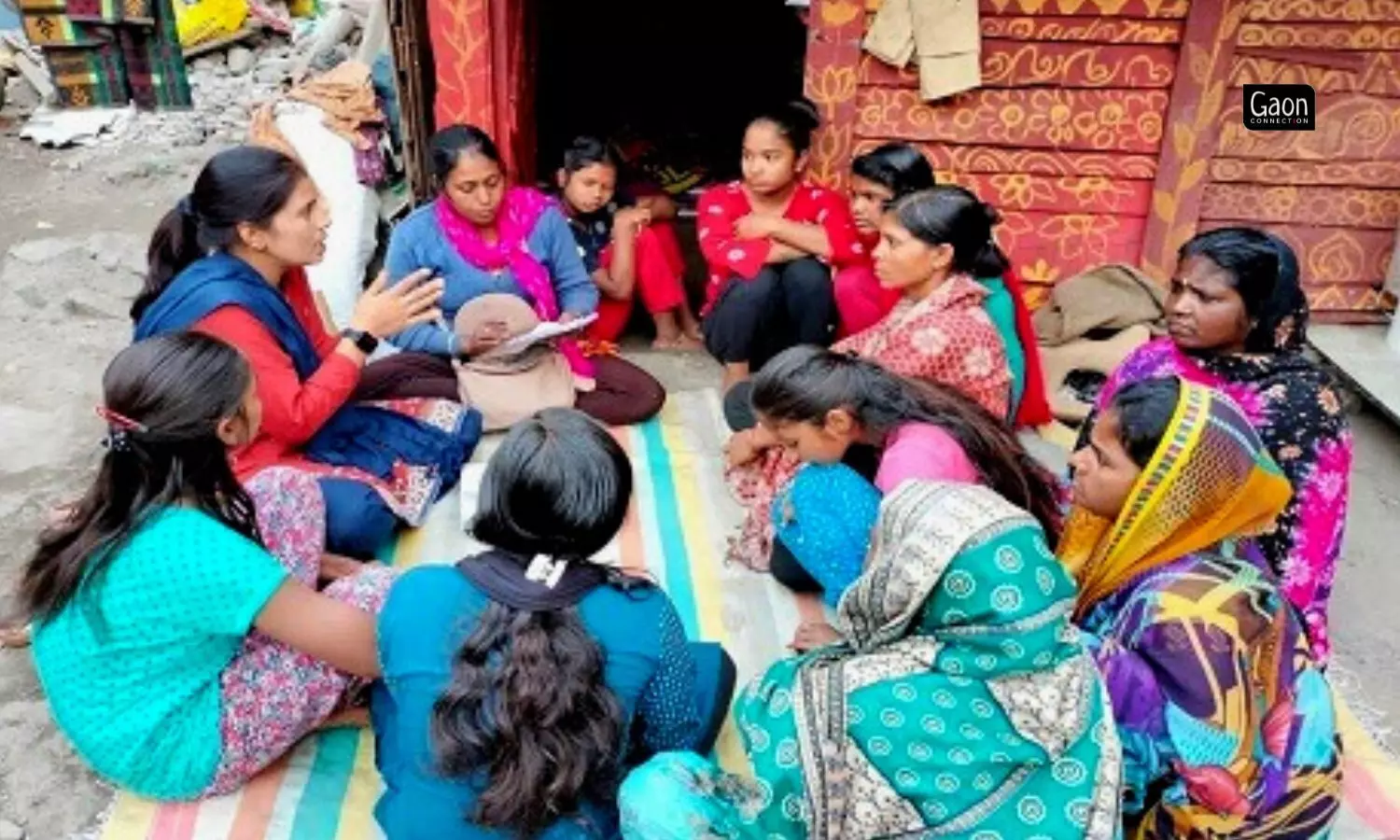Uttarakhand continues to bear the brunt of rampant and unplanned development in the Himalayas. The impacts of recent extreme weather events including landslides and floods illustrate the vulnerability of mountainous regions to climate change and this has increased the risk of fear and mental distress for local populations, especially in remote areas. For instance, people in Joshimath report that they are staring at an uncertain future making them feel anxious and stressed out.
The World Health Organization (WHO) in its recent policy brief outlines that increasing climate change poses a huge threat to mental health and psychosocial well-being from emotional distress to anxiety, depression, grief, and suicidal behavior.

As per a 2021 report by a Dehradun-based SDC Foundation, only four psychiatrists are available for a population of more than 10 million across 13 districts in the hill state.
What is even more worrying is that mental health impacts of climate change are unequally distributed and affect people disproportionately based on factors such as socio-economic status, caste, religion, gender and age.
The Himalayan state of Uttarakhand struggles to have specialist doctors to attend to cases of psychological well being of the residents. As per a 2021 report by a Dehradun-based SDC Foundation, only four psychiatrists are available for a population of more than 10 million across 13 districts in the hill state.
Also Read: The land beneath their feet slips while authorities sleep
Assessing mental health
There is an urgent need to conduct a statewide assessment of two things: One, the prevalence of mental health problems across all 13 districts and in all the age groups, and, two, to assess the capacity of the health system to address mental health issues at the primary and community levels in both rural and urban areas of Uttarakhand.
This will generate the much-needed data to design interventions that are not only effective but also user-appropriate. Meaning, this will equip us to look at the mental health problems of women in rural areas differently when compared to children and adolescents living in urban areas. One size fits all approach does not work here.

Burans works with the urban poor, women, victims of domestic violence, prisoners, young people and others.
Such a dataset will also help the government plan its policy and resource allocation. It will also set an example of evidence-based decision-making. Investing in mental health not only makes the lives of citizens better and uplifts society but also ensures productivity in terms of economic growth.
Just for reference, the Philippines has become one of the first countries in the world to study the economic case for mental health investment and UN agencies say that investment in mental health interventions there could save more than 26,000 lives and return 3 million healthy life years to Filipinos over 20 years, and yield returns over 20 years as high as US $15 for every $1 invested now.
Further, these assessments also have the potential to mitigate the mental health impacts caused due to climate change and extreme weather events that are unfolding at a rapid rate in the Himalayas of Uttarakhand. These could help launch targeted interventions for populations that are living in remote regions and stand deeply affected.
Stakeholders also need to focus on strengthening the policy framework which includes strict implementation of the Mental Healthcare Act 2017. The act remains the most important policy piece in ensuring that the rights of those affected by mental health issues are secured and adequate social security measures are provided by the state. It also provides for the establishment of a State Mental Health Authority and State Mental Health Review Board that most of the states, including Uttarakhand, have failed to constitute even after six years of this act coming into force.
The above-mentioned assessments can also be used by the government to review Uttarakhand’s implementation of the District Mental Health Programme (DMHP), launched under the National Mental Health Programme (NMHP) by the Union Ministry of Health in 1996.
DMHP remains a critical policy intervention that provided for the decentralisation of mental health services and its integration with regular medical services. It also talks about the training of medical personnel, integration at the primary health care level, identification and screening of mental health issues and focussing on community mental health.
Currently, while DMHP is being implemented in all 13 districts of Uttarakhand as per the Union Health Ministry, many people in rural and remote districts such as Uttarkashi report that there is no access to mental health care or the essential medicines mandated in DMHP.
Promoting community mental health
One of the effective ways for Uttarakhand to tackle the growing burden of mental health challenges is by promoting community mental health. It is an approach where mental health issues are handled at a community level rather than in institutional settings.
Community mental health interventions have shown huge potential in addressing the treatment gap that exists due to the inadequate availability of specialist doctors and the stigma that remains deeply rooted in our society.
Community mental health programmes can also be a good tool in addressing the stressors caused in the community due to climate change and disasters, which are unfortunately becoming a regular phenomenon in Uttarakhand.
Burans, a community health initiative of Herbertpur Christian Hospital and the Uttarakhand Community Health cluster in Dehradun, is a good example of this. Started in 2014, Burans works with marginalised populations in Uttarakhand such as the urban poor, women, victims of domestic violence, prisoners, young people and others. It works with a network of community health workers, lay workers, volunteers, and students who play a crucial role in raising awareness and educating communities on mental health and engaging in the identification and screening of mental health problems.

Burans has also provided evidence on how community psychosocial support groups can help improve mental health.
The initiative has also developed Nae Disha,a special youth resilience programme that has been rolled out in government schools in Dehradun and Uttarkashi. This could serve as a good template for similar interventions at scale across cities and districts.
Burans has also provided evidence on how community psychosocial support groups can help improve mental health, especially amongst marginalised women, even where there is a mental health professional.
There is also a special onus on the citizenry and the larger civil society of Uttarakhand to engage in advocacy and dialogue with the government on issues of mental health. They could also play a crucial role in constructing spaces that are open and safe for people to come and share their mental health experiences, especially with a focus on young people.
The time has come for Uttarakhand to put mental health at the top of its priority list. It will further need proactive and evidence-based action from the system and a strong political will to support people in the state to be mentally healthy.
Shrivastava is an independent researcher and writer working on issues of law and public policy. Views are personal.


















